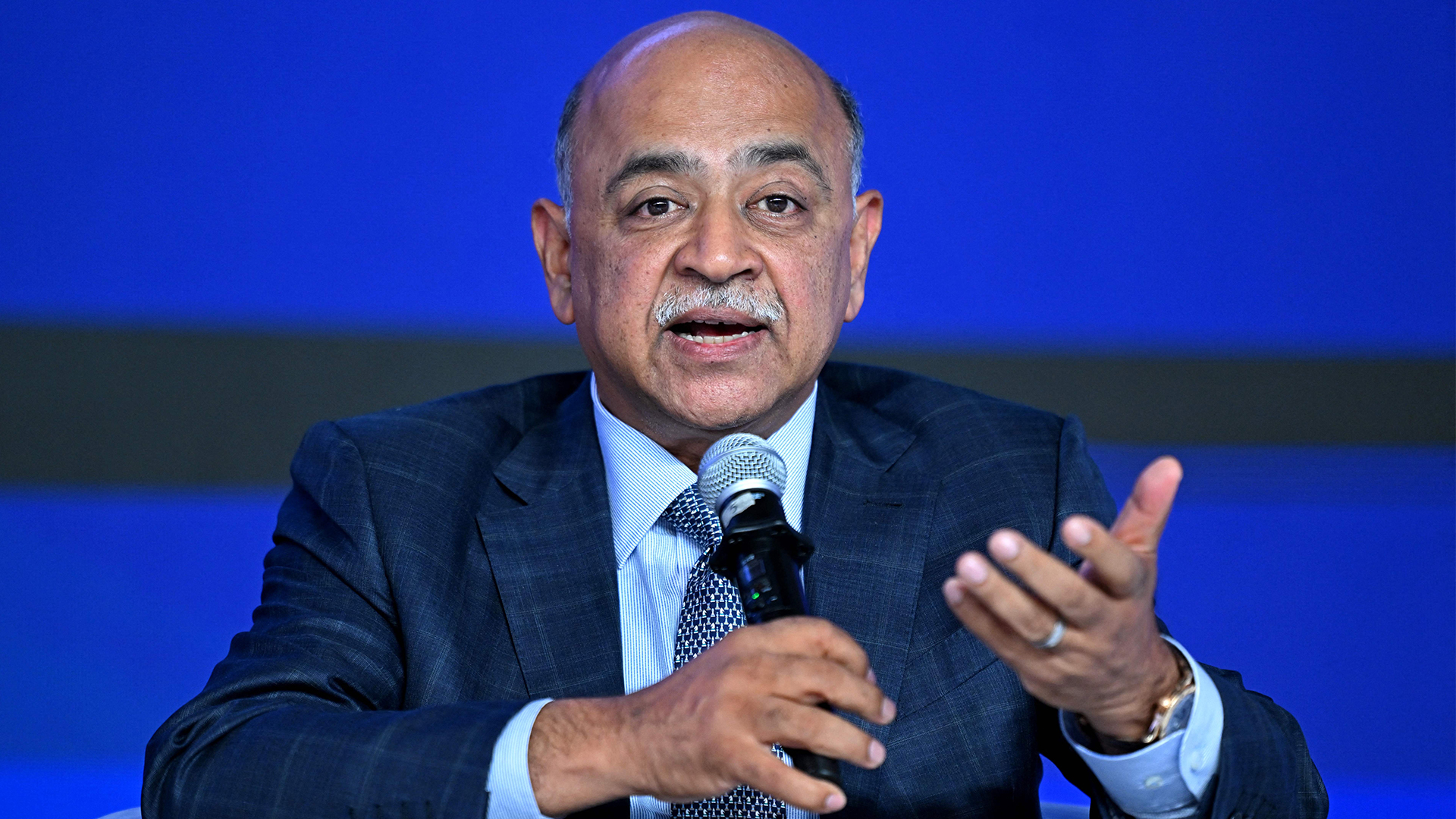Tech consulting market tipped to surpass $400bn in global revenue in 2026
A new report from Source Global Research reveals an increased appetite for tech consulting services as businesses look to upgrade hardware and tools


Stay up to date with the latest Channel industry news and analysis with our twice-weekly newsletter
You are now subscribed
Your newsletter sign-up was successful
The global tech consulting market is set to pass $400 billion in global revenues for the first time in 2026, according to a new study from Source Global Research.
The hike is being fueled by a rise in technology upgrades, with a majority of buyers (84%) planning to upgrade their tech over the coming twelve months and 81% intending to increase reliance on consultants.
As a result, Source predicts growth will increase from 4% in 2024 to 6% in 2025, before hitting 7% in 2026 – marking a global revenue hike of around $50 billion in just two years.
Commenting on the findings, Nick Jotischky, Source’s head of market trends, said buyers are adamant about the need to upgrade their tech over the coming year despite market uncertainty and low business confidence.
“Investing to upgrade their legacy infrastructure is at the top of their to-do lists—it is not something they are willing to hold off on until the market becomes clearer,” he explained. “This is fueling the healthy growth rate for technology consulting.”
Globally, the fastest growing sectors in 2026 are expected to be pharma and life sciences (10%), healthcare (10%), as well as energy and resources (9%), owed largely to the sensitive and critical nature of the data these industries handle.
According to Jotischky, buyers across the board are also prioritizing updates to digital transformation programs that have become outdated since their implementation.
Stay up to date with the latest Channel industry news and analysis with our twice-weekly newsletter
“Half of the companies that had conducted a digital transformation reported that they need more work to be done, in terms of updating system integration, adding extra cybersecurity defences, or implementing new technologies,” he added.
Tech consulting plugs expertise gaps
Despite the majority of participating companies (84%) stating that their IT staff will double over the next five years, Source said consulting firms have an opportunity in the meantime to deliver external support to bridge gaps in IT expertise.
While four-in-five companies said they expect to purchase more consulting services from the ‘Big Four’ this year, there is also an appetite for ‘fresh ideas’ from firms they may not have worked with before.
This, the study noted, will create revenue opportunities for those able to show an understanding of current tech infrastructure pain points.
Specifically, more than a third of companies (40%) said they are looking to recruit skills in the use of advanced technologies as well as data analytics as the need for predictive maintenance and personalized user experiences continues to increase.
Price rises
On the cost front, companies now expect to pay more for consulting services, with two thirds of respondents expecting prices to increase and 27% predicting these increases to be significant.
Jotischky said tech buyers anticipate these rises because consulting firms will use more proprietary tools to tackle business challenges – including custom-built AI models and data analysis engines.
“But they also recognize that prices will increase because of greater buy-in from senior levels of the organisation and that the work will be of strategic importance,” he continued.
“Digital transformation projects are extremely important strategically and are most likely to be commissioned by CxOs, so companies are prepared to pay more for them.”
Digital investment
As generative AI capabilities continue to modernize large swathes of the IT landscape, tech buyers view the technology as the most critically important area of technology investment in their organization.
Despite this, Source’s report found that use of generative AI remains “largely at an experimental level” with fewer than one in five companies currently making extensive use of these new capabilities across their organizations.
Looking ahead, however, 94% plan to increase their investment in digital technology over the next 18 months, with more than half (53%) indicating they will do so to a “significant extent.”
Make sure to follow ITPro on Google News to keep tabs on all our latest news, analysis, and reviews.
MORE FROM CHANNELPRO
Dan is a freelance writer and regular contributor to ChannelPro, covering the latest news stories across the IT, technology, and channel landscapes. Topics regularly cover cloud technologies, cyber security, software and operating system guides, and the latest mergers and acquisitions.
A journalism graduate from Leeds Beckett University, he combines a passion for the written word with a keen interest in the latest technology and its influence in an increasingly connected world.
He started writing for ChannelPro back in 2016, focusing on a mixture of news and technology guides, before becoming a regular contributor to ITPro. Elsewhere, he has previously written news and features across a range of other topics, including sport, music, and general news.
-
 Mistral CEO Arthur Mensch thinks 50% of SaaS solutions could be supplanted by AI
Mistral CEO Arthur Mensch thinks 50% of SaaS solutions could be supplanted by AINews Mensch’s comments come amidst rising concerns about the impact of AI on traditional software
-
 Westcon-Comstor and UiPath forge closer ties in EU growth drive
Westcon-Comstor and UiPath forge closer ties in EU growth driveNews The duo have announced a new pan-European distribution deal to drive services-led AI automation growth
-
 Gender diversity improvements could be the key to tackling the UK's AI skills shortage
Gender diversity improvements could be the key to tackling the UK's AI skills shortageNews Encouraging more women to pursue tech careers could plug huge gaps in the AI workforce
-
 Global IT spending set to hit a 30-year high by end of 2025
Global IT spending set to hit a 30-year high by end of 2025News Spending on hardware, software and IT services is growing faster than it has since 1996
-
 Chief data officers believe they'll be a 'pivotal' force in in the C-suite within five years
Chief data officers believe they'll be a 'pivotal' force in in the C-suite within five yearsNews Chief data officers might not be the most important execs in the C-suite right now, but they’ll soon rank among the most influential figures, according to research from Deloitte.
-
 UK firms are pouring money into AI, but they won’t see a return on investment unless they address these key issues
UK firms are pouring money into AI, but they won’t see a return on investment unless they address these key issuesNews An SAP report projects increased AI investment, but cautions that too many organizations are taking a fragmented approach
-
 Varonis snaps up AI email security specialist SlashNext
Varonis snaps up AI email security specialist SlashNextNews The vendor will integrate SlashNext’s phishing and social engineering detection capabilities into its Data Security Platform
-
 ‘Employees aren’t having it’: European workers are pushing back on the US-style ‘always on’ work culture – many are worried about the rise of ‘hustle culture’ and a third would quit if forced back to the office
‘Employees aren’t having it’: European workers are pushing back on the US-style ‘always on’ work culture – many are worried about the rise of ‘hustle culture’ and a third would quit if forced back to the officeNews New research shows European workers are pushing back on the 'always on' culture and fear US-style corporate policies creeping into workplaces.
-
 ‘There is no law of computer science that says that AI must remain expensive and must remain large’: IBM CEO Arvind Krishna bangs the drum for smaller AI models
‘There is no law of computer science that says that AI must remain expensive and must remain large’: IBM CEO Arvind Krishna bangs the drum for smaller AI modelsNews IBM CEO Arvind Krishna says smaller, more domain-specific AI models have become the most efficient and cost-effective options for enterprises.
-
 Young tech professionals are shunning a full-time return to the office – unless it pays more
Young tech professionals are shunning a full-time return to the office – unless it pays moreNews Young tech professionals who entered the workforce post-pandemic expect on-site work to be paid more than remote options.
